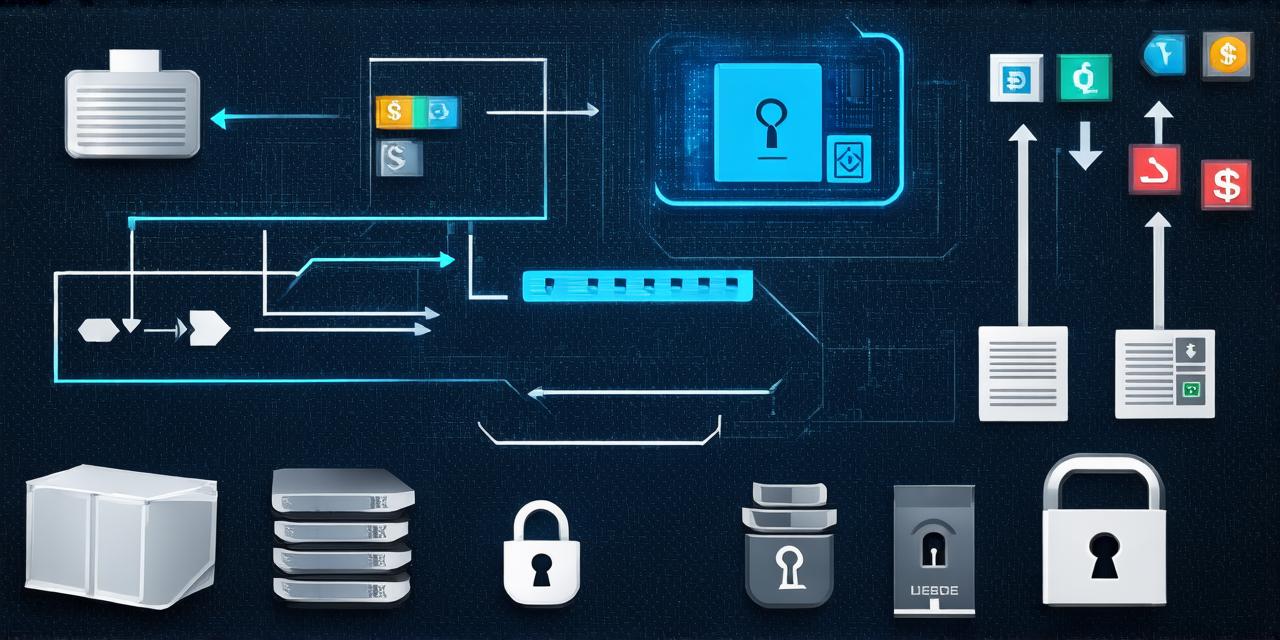Understanding Blockchain Storage Mechanism
Blockchain is a distributed ledger system that enables secure, transparent, and decentralized data storage. Unlike traditional databases, which rely on centralized servers to store and manage data, blockchain uses a network of computers to store data in a decentralized manner. Each block in the chain contains a set of transactions, which are verified and validated by nodes (computers) on the network. Once a block is validated, it is added to the chain, creating an immutable record of all transactions that have occurred on the network.
Decentralized Storage vs Centralized Storage
Centralized storage solutions rely on a single point of failure, which can result in data loss, corruption, or theft if the central server goes down. In contrast, decentralized blockchain-based storage systems distribute data across a network of computers, making them more secure and resilient to attacks. Additionally, decentralized storage solutions enable greater control over data ownership and access, as users can choose who has access to their data and for how long.
Types of Blockchain Storage Solutions
There are several types of blockchain storage solutions, including:
- Public Blockchains: These are open-source blockchain networks that allow anyone to participate in the network and validate transactions. Examples include Bitcoin, Ethereum, and Litecoin. Public blockchains offer a high level of security and transparency but can be slower and more expensive than private blockchains.
- Private Blockchains: These are closed-source blockchain networks that limit participation to authorized members only. Private blockchains offer greater control over data ownership and access, making them ideal for businesses and organizations with sensitive data. However, they may not be as secure as public blockchains since they rely on a centralized authority to manage the network.
- Hybrid Blockchains: These are a combination of public and private blockchain networks, allowing businesses to leverage the benefits of both types of blockchains. Hybrid blockchains offer greater flexibility and customization, enabling businesses to choose the best storage solution for their specific needs.
Benefits of Blockchain Storage Solutions
Blockchain-based storage solutions offer several benefits, including:
- Immutable Data: Once data is stored on a blockchain, it cannot be altered or deleted, ensuring data integrity and security.
- Decentralized Control: Decentralized storage solutions enable greater control over data ownership and access, as users can choose who has access to their data and for how long.
- Transparency: Blockchain-based storage solutions offer transparency, allowing users to see who accessed their data and when.
- Scalability: Blockchain-based storage solutions are highly scalable, enabling businesses to store large amounts of data without compromising on performance or security.
- Security: Blockchain-based storage solutions are highly secure, making them ideal for storing sensitive data such as financial records and personal information.
Case Studies: Real-Life Examples of Blockchain Storage Solutions
1. Supply Chain Management: Blockchain-based storage solutions have revolutionized supply chain management by enabling greater transparency and traceability of goods. For example, Walmart uses a blockchain-based system to track the origin of food products, ensuring that they are safe for consumption.
2. Healthcare: In the healthcare industry, blockchain-based storage solutions are being used to store patient data securely and transparently. For example, MedRec uses a blockchain-based system to store patient medical records, enabling patients to control who has access to their data and for how long.
3. Real Estate: Blockchain-based storage solutions have the potential to revolutionize the real estate industry by enabling greater transparency and security in property transactions. For example, Provenance uses a blockchain-based system to store property records, ensuring that they are secure and accessible to all parties involved in a transaction.
FAQs: Common Questions about Blockchain Storage Solutions

1. Is my data secure on a blockchain?
Yes, data stored on a blockchain is highly secure and immutable, making it resistant to attacks such as hacking and data theft.
2. Who controls my data on a blockchain?
The control over data stored on a blockchain depends on the type of blockchain used. Public blockchains are open-source and decentralized, while private blockchains may be centralized and controlled by authorized users only.
3. Can I change my data on a blockchain?
No, once data is stored on a blockchain, it cannot be altered or deleted. This ensures data integrity and security.
4. Is a blockchain a database?
Yes, a blockchain can function as a database, enabling secure storage and management of data. However, it differs from traditional databases in that it is decentralized and relies on a network of computers to store and manage data.
Conclusion: Blockchain Storage Solutions for the Digital Age
In conclusion, blockchain-based storage solutions offer several benefits, including immutable data, decentralized control, transparency, scalability, and security. These solutions are being used in a variety of industries, including supply chain management, healthcare, and real estate. As the world becomes more digitized, blockchain-based storage solutions will become increasingly important for securing and managing sensitive data.
